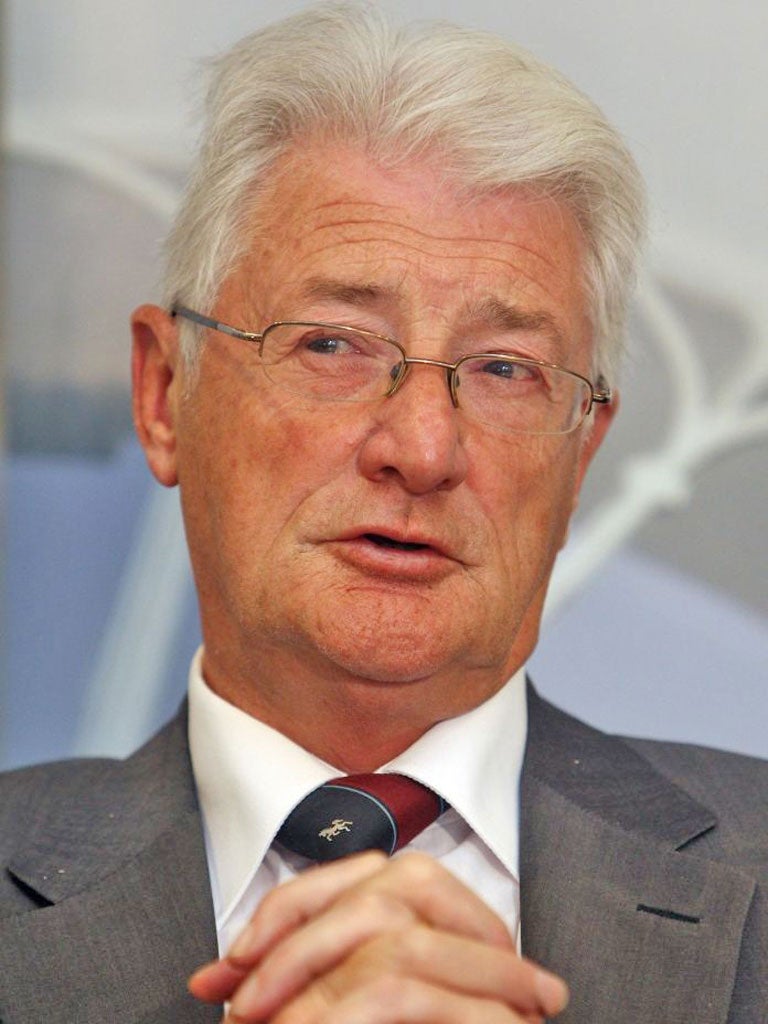Extradited Christopher Tappin to plead guilty to arms dealing charges

Your support helps us to tell the story
From reproductive rights to climate change to Big Tech, The Independent is on the ground when the story is developing. Whether it's investigating the financials of Elon Musk's pro-Trump PAC or producing our latest documentary, 'The A Word', which shines a light on the American women fighting for reproductive rights, we know how important it is to parse out the facts from the messaging.
At such a critical moment in US history, we need reporters on the ground. Your donation allows us to keep sending journalists to speak to both sides of the story.
The Independent is trusted by Americans across the entire political spectrum. And unlike many other quality news outlets, we choose not to lock Americans out of our reporting and analysis with paywalls. We believe quality journalism should be available to everyone, paid for by those who can afford it.
Your support makes all the difference.A retired British businessman extradited to the United States will admit his guilt over arms dealing charges today.
Christopher Tappin will plead guilty when he appears in court in El Paso, Texas, this afternoon in an agreement with US prosecutors, his family confirmed.
But even if the deal is agreed by senior US district judge David Briones, it is still likely to be several weeks before he is sentenced for conspiring to sell batteries for Iranian missiles.
His wife Elaine, 62, said "however upsetting" a plea deal was, it marked the beginning of his "swift and safe return" to the UK.
Mrs Tappin, who has chronic Churg-Strauss syndrome, said: "From the moment Chris was put on a plane all we ever wanted was his swift and safe return.
"However upsetting, this is the beginning of that process."
Tappin, 65, of Orpington, Kent, is on bail after being extradited to the US in February.
The former president of the Kent Golf Union has previously denied attempting to sell batteries for surface-to-air missiles which were to be shipped from the US to Tehran via the Netherlands, saying he was the victim of an FBI sting.
The case followed an investigation which started in 2005 when US agents asked technology providers about buyers who might have raised red flags.
Those customers were then approached by undercover companies set up by government agencies.
Tappin faced up to 35 years in jail, but this is likely to be significantly reduced under the terms of his plea deal, which have not yet been released.
Briton Robert Gibson, an associate of Tappin who agreed to co-operate, was jailed for 24 months after pleading guilty to conspiracy to export defence articles.
Gibson provided customs agents with about 16,000 computer files and emails indicating that he and Tappin had long-standing commercial ties with Iranian customers.
American Robert Caldwell was also found guilty of aiding and abetting the illegal transport of defence articles and served 20 months in prison.
Plea bargaining is common in the US, with defendants often able to secure a more lenient sentence if they admit an offence and co-operate with prosecutors, rather than contest the charges in a trial.
But other extradited Britons - including so-called NatWest Three banker David Bermingham, who was jailed for 37 months over an Enron-related fraud in a plea deal four years ago - have claimed the system empowers prosecutors as "judge, jury and executioner".
The system, and the pressure it places on defendants, leaves extradited Britons with little choice but to accept a deal if they want to return to their families at home, Bermingham, of Goring, south Oxfordshire, said.
Tappin's UK lawyer, Karen Todner, who also represented computer hacker Gary McKinnon in his successful 10-year fight against extradition, said 98% of people who enter the US justice system agree a plea deal.
"The odds are so heavily stacked against a defendant who chooses to plead not guilty and then is subsequently found guilty that the vast majority of people facing trial in the US opt to take a plea agreement," she said.
"I hope that following this decision to enter into a plea agreement Mr Tappin will be able to return to the UK as soon as possible to rejoin his family."
PA
Join our commenting forum
Join thought-provoking conversations, follow other Independent readers and see their replies
Comments